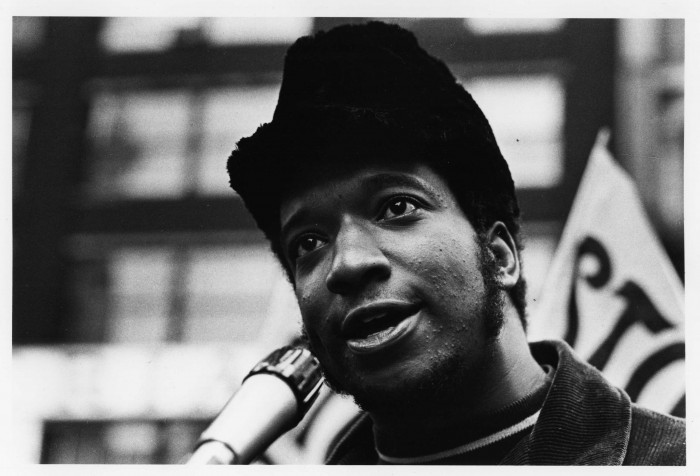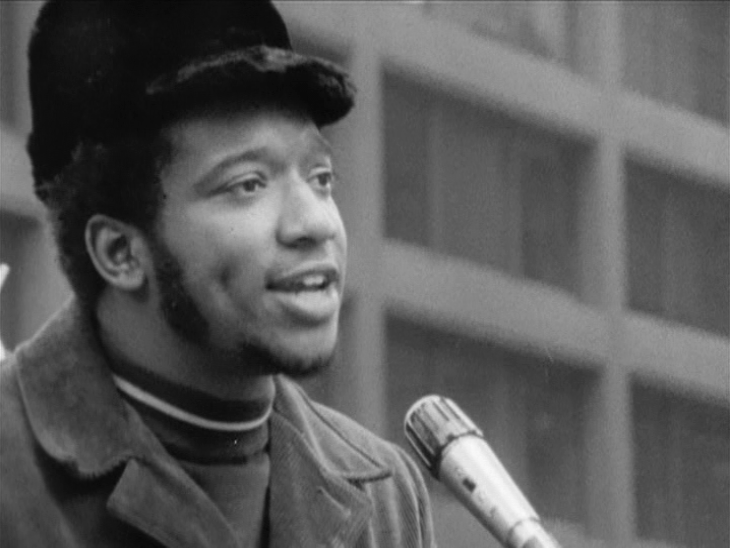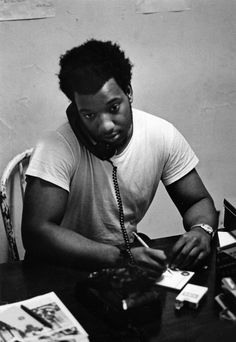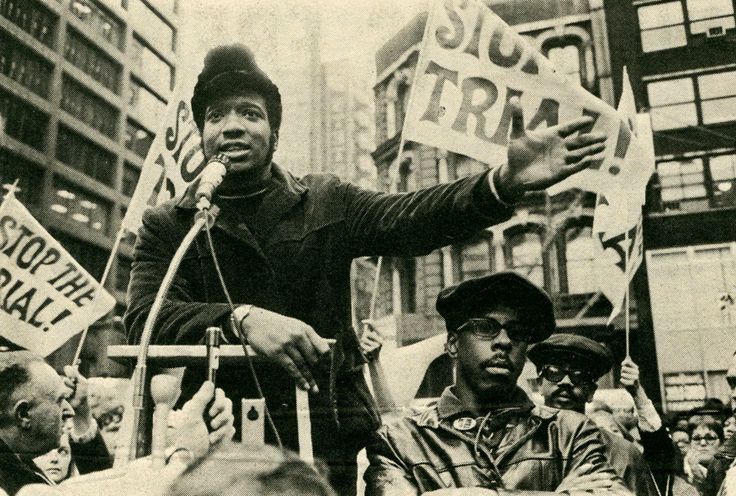“You can kill a revolutionary, but you cannot kill a revolution. You can jail a liberation fighter, but you cannot jail liberation.” ~ Fred Hampton
Fred Hampton, an African-American activist and deputy chairman of the Illinois chapter of the Black Panther Party, was known in the late 1960s as one of the most inspiring, articulate and effective leaders in Chicago. He organized food pantries, educational programs, and recreational outlets for impoverished children, and he helped bring about a peaceful coexistence among the city’s rival street gangs. However, to civic leaders in Chicago, the FBI, and others in the system, he was a dangerous revolutionary leader.
Hampton was born on August 30, 1948 and raised in the Chicago suburb of Maywood, Illinois. In high school he excelled in academics and athletics.
Following his graduation, Hampton enrolled at Triton Junior College in nearby River Grove, Illinois, majoring in pre-law. He also became active in the National Association for the Advancement of Colored People (NAACP), assuming leadership of the Youth Council of the organization’s West Suburban Branch. In his capacity as an NAACP youth organizer, Hampton began to show signs of his natural leadership ability. From a community of 27,000, he was able to muster a youth group 500-members strong, an impressive size even for a constituency twice as large. Hampton considered it his mission to create a better environment for the development of young African Americans. He worked to get more and better recreational facilities established in the neighborhoods, and to improve educational resources for Maywood’s African American community.
At about the same time that Hampton was successfully organizing young African Americans for the NAACP, the Black Panther Party for Self-Defense started rising to national prominence. Hampton was quickly attracted to the Black Panther approach, which was based on a ten-point program of African American self-determination. Hampton joined the Black Panther Party and relocated to downtown Chicago, where he launched the party’s Illinois chapter in November of 1968.
During his brief BPP tenure, Hampton formed a “Rainbow Coalition” which included Students for a Democratic Society, the Blackstone Rangers, a street gang and the National Young Lords, a Puerto Rican organization. Hampton was also successful in negotiating a gang truce on local television. Equally important was Hampton’s work as a developer of community service programs. His leadership helped create a program that provided free breakfasts for schoolchildren, a program the Panthers had initiated in several cities. Hampton was also instrumental in the establishment of a free medical clinic, and other programs accessible to poor African Americans. By the tender age of 20, Hampton had become a respected community leader among Chicago’s black population.
In an effort to neutralize the Chicago BPP, the Federal Bureau of Investigation (FBI) and the Chicago Police Department placed the chapter under heavy surveillance and conducted several harassment campaigns. In 1969, several BPP members and police officers were either injured or killed in shootouts and over one hundred local members of the BPP were arrested.
During an early morning police raid of the BPP headquarters at 2337 W. Monroe Street on December 4, 1969, twelve officers opened fire, killing the 21 year old Hampton and Panther leader Mark Clark. Police also seriously wounded four other Panther members. Many in the Chicago African American community were outraged over the raid and what they saw as the unnecessary deaths of Hampton and Clark. Over 5,000 people attended Hampton’s funeral where Reverends Ralph Abernathy and Jesse Jackson of the Southern Christian Leadership Conference eulogized the slain activist. Years later, law enforcement officials admitted wrongdoing in the killing of Hampton and Clark.
In 1990 and later in 2004 the Chicago City Council passed resolutions commemorating December 4 as Fred Hampton Day.
Sources:
http://www.blackpast.org/aah/hampton-fred-1948-1969#sthash.NBPeXHEx.dpuf”>http://www.blackpast.org/aah/hampton-fred-1948-1969#sthash.NBPeXHEx.dpuf
http://www.encyclopedia.com/doc/1G2-2872000026.html”>http://www.encyclopedia.com/doc/1G2-2872000026.html







1 comment
They kill us, admit that they were wrong, and then pass resolutions giving us a one day celebration on the calendar. What about human life? Oh, I forgot, we are only African American males. Years later, we still feel outraged. They are still killing us, and they wonder why we are so outraged. We are still fighting the fight our grandparents fought, to no avail! What do we have to do for society to change?